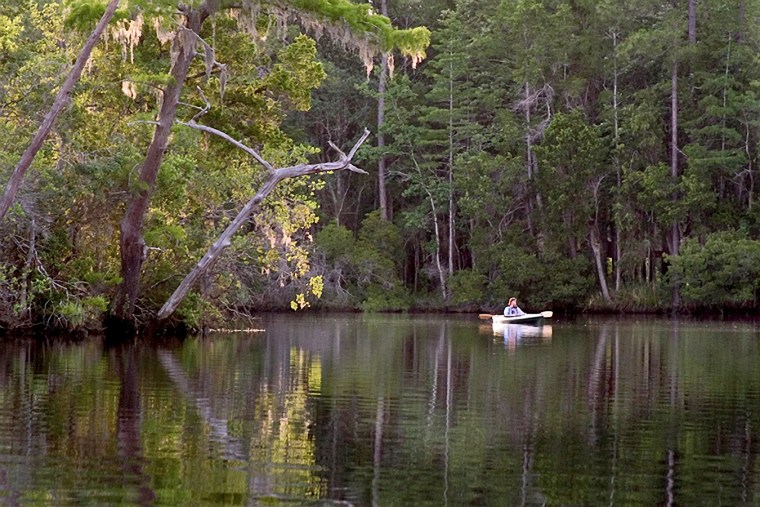A major timber company and two conservation groups announced Tuesday what they called the largest private land conservation effort in the South: a $300 million deal to place 218,000 acres of working forests in 10 states under a sustainable logging program.
Under the terms, International Paper will receive $300 million from The Nature Conservancy and The Conservation Fund for the land, while retaining the right to some harvesting under sustainable principles.
The company could have sold the land for subdivisions and related development, possibly for much more, but the deal bans that. The approach — better a working forest than buildings and roads — has taken root in other areas of the country in recent years as timber companies are tempted to sell forests to make room for suburban growth.
“The continued fragmentation of forests because of subdivision, land use change and development is one of the most pressing threats facing the American landscape today,” the partners said in a statement.
The Nature Conservancy will acquire more than 173,000 acres in North Carolina, Virginia, Georgia, Florida, Alabama, Arkansas, Tennessee, Louisiana and Mississippi.
The Conservation Fund will acquire more than 5,000 acres in Florida and 500 in North Carolina. The two groups will jointly purchase an additional 39,000 acres in South Carolina.
Most to remain working forests
“The tracts included in the sale are some of International Paper's most ecologically important lands,” the partners said. “The majority of the land will remain working forests. Under the terms of the agreement, timber will be sustainably harvested from some tracts and a set amount of timber volume will be supplied to International Paper for local production. Sensitive areas will continue to be set aside from harvesting activities.”
“After five years, it will be up to the landowner as to whether any harvesting occurs,” said Nature Conservancy spokesman Steve Ertel.
Many parcels are home to bald eagles, black bear and the endangered red-cockaded woodpecker, the partners said, and most lands are along rivers and estuaries — such as the Perdido River on the border of Florida and Alabama, the Lower Roanoke River in North Carolina and Pee Dee and Little Pee Dee Rivers in South Carolina.
International Paper and The Conservation Fund in 2004 agreed to a similar deal for 257,000 acres in New York's Adirondack Park.
“As much as 44 million acres of privately owned forestland, a critical part of the nation’s landscape, will be sold over the next 25 years,” the partners added. “The future of these lands ... will be told within that time.”
Larry Selzer, president of the Conservation Fund, said the deal was a coup considering whopping prices large tracts in the South are fetching from developers, often crowding out conservation groups seeking to buy.
"For the nonprofit community, that's a huge challenge," Selzer said.
States might buy some lands
About 90 percent of the South's 201 million acres of timberland is owned by private individuals and corporations. A 2002 federal study projected the South to lose 31 million acres to urban development over the next four decades.
Steve McCormick, president of the Nature Conservancy, said the conservation groups are negotiating for much of their newly acquired land to be purchased by state governments for public use over the next five years.
In South Carolina, Gov. Mark Sanford signed revenue bonds Tuesday as a first step toward the state acquiring its share of the land.
Sanford praised the opportunity to place forested land in protection on such a large scale. The South Carolina sale includes 25,668 acres covering 27 miles of riverfront on the Pee Dee and Little Pee Dee rivers in Marion County.
"You don't have an ecosystem in a postage stamp," Sanford said. "...If we're going to make a profound difference in quality of life and a profound difference on an ecological front, I think we need to constantly look at large acreage as opposed to small acreage."
The total 77,090 acres being sold in 12 eastern North Carolina counties will help control pollution runoff along 300 miles of streams and riverbanks, Gov. Mike Easley said at a news conference.
Over the next three years, the state plans to buy about 67,000 acres of the North Carolina land from the conservation groups for up to $72 million, according to the Nature Conservancy. The rest will be sold to private owners with environmental groups controlling the timber to protect wildlife.
"This was an opportunity that we could not pass up," Easley said.
